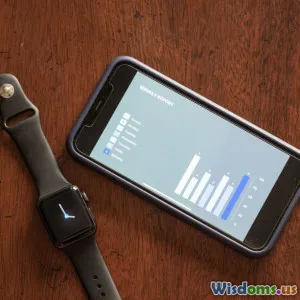
Digital Health: The Next Frontier
6 min read Explore the transformative world of digital health, where technology meets healthcare for enhanced patient experiences and outcomes. (0 Reviews)
Digital Health: The Next Frontier
In recent years, the landscape of healthcare has undergone a significant transformation, largely driven by advancements in technology. Digital health, encompassing a wide range of technologies such as mobile health (mHealth), telemedicine, electronic health records (EHR), and wearable devices, is at the forefront of this revolution. As we delve deeper into the potential of digital health, we uncover how it is reshaping patient care and redefining the healthcare experience.
The Rise of Digital Health
The digital health movement began gaining traction in the early 21st century, fueled by the proliferation of smartphones, the internet, and advanced data analytics. Today, digital health represents a convergence of various technologies that aim to improve health outcomes, enhance patient engagement, and streamline healthcare delivery.
Key Components of Digital Health
-
Mobile Health (mHealth): mHealth applications have made it possible for patients to monitor their health on-the-go. From tracking daily activities to managing chronic conditions, these apps empower users to take control of their health.
-
Telemedicine: Telehealth services have proven to be invaluable, especially highlighted during the COVID-19 pandemic. Virtual consultations allow healthcare providers to reach patients remotely, reducing the need for in-person visits and expanding access to care.
-
Wearable Devices: Fitness trackers and smartwatches have revolutionized health monitoring. These devices can track vital statistics such as heart rate, sleep patterns, and physical activity, providing real-time data that can be shared with healthcare professionals.
-
Electronic Health Records (EHR): EHRs streamline the management of patient information, ensuring that healthcare providers have access to comprehensive patient histories, which enhances the quality of care.
-
Health Data Analytics: The ability to analyze vast amounts of health data allows for improved decision-making at both individual and population levels. Predictive analytics can identify at-risk patients, leading to timely interventions and better health outcomes.
Benefits of Digital Health
The integration of digital health technologies into healthcare systems offers numerous advantages:
- Increased Accessibility: Patients in remote areas can access healthcare services that may not be available locally.
- Enhanced Patient Engagement: Digital tools facilitate better communication between healthcare providers and patients, fostering a more collaborative healthcare experience.
- Personalized Medicine: Tailoring treatments based on individual data and preferences has the potential to significantly improve treatment efficacy.
- Cost Reduction: By streamlining processes and reducing unnecessary hospital visits, digital health can help lower healthcare costs for both providers and patients.
Challenges to Overcome
Despite the numerous benefits, the adoption of digital health also faces challenges:
- Data Privacy and Security: With the increase in data sharing, concerns about the privacy and security of patient information are paramount. Ensuring that health data is protected is crucial to maintain patient trust.
- Regulatory Hurdles: The healthcare industry is heavily regulated, and navigating these regulations can pose challenges for digital health innovators.
- Digital Divide: Not all populations have equal access to digital technologies, creating disparities in who can benefit from digital health solutions.
The Future of Digital Health
As technology continues to advance, the future of digital health looks promising. Innovations such as artificial intelligence (AI) and machine learning are set to further enhance the capabilities of digital health tools. For instance, AI can assist in diagnosing diseases, predicting patient outcomes, and personalizing treatment plans based on large datasets.
Moreover, with increased investment in digital health startups and a growing emphasis on preventive care, we can expect to see even more innovative solutions that prioritize patient health and well-being.
Conclusion
Digital health represents the next frontier in healthcare, offering a multitude of opportunities to improve patient care and outcomes. As we navigate this evolving landscape, it is essential to address the challenges that come with it to ensure that the benefits of digital health are accessible to everyone. Embracing this digital transformation not only enhances the patient experience but also paves the way for a healthier future for all.
Rate the Post
User Reviews
Popular Posts




















